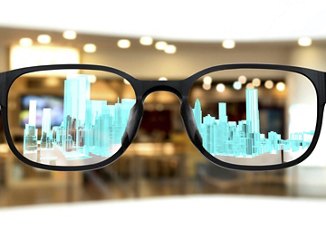4 Ways AI is Transforming Real Estate Operations
Over the past ten years, the real estate industry has undergone a tech revolution with the emergence of artificial intelligence (AI), reshaping every corner of its operations and dramatically changing the way we, as stakeholders, interact with the built environment. The adoption of disruptive AI technology in real estate has the power to create significant positive change.
Here are a couple of examples that demonstrate its prescient and remarkable potential:
1. Predictive Analytics for Property Valuation
These models, using algorithms, can leverage constantly updated data sets to provide real-time and more accurate property valuations.
Use Case: Zillow’s “Zestimate” is one of the most prevalent cases across every real estate market on the planet. Using an ever-expanding data set of information, probabilistic and statistical analyses, and constantly changing algorithms, Zillow estimates the market value of residential properties based on available locational data, historical sales data, and property features. While not entirely accurate, Zillow’s practice in refining their algorithms shows that the quality of their estimates can be improved over time and their impact on real-estate transactions can potentially change for the better.
2. Smart Building Technology
Encompassing anything from commercial buildings, apartments, and shopping malls to warehouses, AI can be employed to improve energy efficiency, security, and comfort.
Use Case: A smart building solution utilizing IBM Watson IoT can optimize energy use in buildings. The data system can connect and remotely analyze sensors and connected devices delivering unprecedented insights to specially trained ‘smart’ devices about what is happening within the building. By gathering data on occupancy patterns, weather conditions, and energy utilization, the system automatically adjusts to lower or raise temperatures and lighting for energy efficiency.
3. Automated Property Management
AI-powered systems can streamline property management tasks, including managing maintenance, rent collection, and communicating with tenants. This can improve the productivity of property managers and homeowners.
Use Case: Companies like OpenDoor use AI algorithms to finance homes faster. Data analytics are used to assess property values, market conditions, and other potentially important factors. This allows sellers to sell their homes quickly without going through the traditional listing process.
4. Improved Customer Experience
Chatbots and virtual assistants can be used to instantly answer customer questions, schedule property viewings, and guide potential buyers or tenants through the process thus improving customer satisfaction and engagement.
Use Case: Zurple, a real estate marketing platform, offers a chatbot feature that communicates with leads on behalf of real estate agents. The chatbot initiates conversations, qualifies leads, and tracks them through automated follow-up features. This active role helps agents focus their efforts on highly qualified prospects.
As AI weaves its way into the fabric of the real estate industry and the landscape undergoes dramatic change, the benefits become clear, from accurate asset pricing to streamlined project management and customized customer experiences. But with great innovation comes the responsibility of meeting ethical considerations and ensuring a sustainable and equitable future for the industry.
"AI has started to revolutionize the way we approach multifamily operations. From employees using it to assist with their day-to-day activities to ensuring folks have information at their fingertips, these tools not only exemplify our commitment to our team members and informed decision-making but also highlight the exciting potential of AI to transform industry standards."
- Josh Graf, Data Analytics Associate at Greystar
By adopting AI responsibly, the real estate sector can anticipate a future where efficiency, precision, and innovation harmonize for the benefit of all stakeholders. The journey has just begun, and the possibilities are limitless.
For more on real estate innovations, browse through our other blog articles covering topics like 3D printing, augmented reality, and chatbots.
The information presented on or through this Website is made available solely for general information purposes. We do not warrant the accuracy, completeness, or usefulness of this information. Any reliance you place on such information is strictly at your own risk. We disclaim all liability and responsibility arising from any reliance placed on such materials by you or any other visitor to this Website, or by anyone who may be informed of any of its contents. Any reference to amenities, services, rules, policies, or procedures at a Greystar apartment community is general in nature, and each Greystar apartment community may have amenities, services, rules, policies, and procedures that differ from those referenced on this Website. Please consult with your Greystar apartment community for the exact amenities, services, rules, policies, or procedures applicable.
This Website may include content provided by third parties, including materials provided by other users, bloggers, and third-party licensors, syndicators, aggregators, and/or reporting services. All statements and/or opinions expressed in these materials, and all articles and responses to questions and other content, other than the content provided by Greystar, are solely the opinions and the responsibility of the person or entity providing those materials. These materials do not necessarily reflect the opinion of Greystar. We are not responsible, or liable to you or any third party, for the content or accuracy of any materials provided by any third parties.









